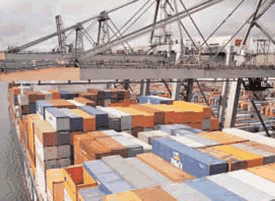 Cargo insurance is vital protection for international traders.
Cargo insurance is vital protection for international traders.
Cargo insurance is business insurance used by companies that routinely engage in shipping products, or that ship a large supply of products one time.
Sometimes called shipping insurance or moving insurance (for commercial goods), cargo insurance covers risks to cargo from water, truck or plane transportation. Single cargo shipments (one trip) and open cargo policies (ongoing transport protection) are the two common product types.
Explore Discount Opportunities
1. Obtain multiple quotes for cargo insurance to cause insurers to compete for your business. Discount rates on single exposure and open policies can be found for commercial freight shipments, international transport and other common transport formats. Go to an online insurance broker that works with multiple cargo insurance providers to complete quote questionnaires and get product rates and terms.
Do Not Overlook the Need for Protection
2. Cargo insurance use and emphasis can vary by country, since cargo transport is often an international process. Countries have different attitudes toward global shipping with regard to imports and exports, taxes and use of waterways. It should be pointed out that traders often ignore cargo insurance, either because of a lack of knowledge or a failure to recognize the negative effects a cargo mishap can have. They avoid the upfront cost of premiums and risk much more expensive losses due to lost or damaged goods. More companies are starting to recognize the importance of cargo protection, notes in its International Trade Guide.
Cargo Insurance for Exporters
3. Cargo insurance is a unique insurance product that effectively shares benefits of coverage between the exporting trader and the importing buyer, who benefits from coverage on damaged goods purchased. Should be explained that exporter-provided freight insurance is a service to buyers as it covers the investment in products. Some global buyers require exporters to include cost in freight insurance or another form of cargo coverage on transports. This creates a competitive importance for cargo insurance. Some exporters expect buyers to arrange and cover insurance based on their specific requirements.
See Beyond Carrier Liability
4. Many global traders consider carrier (shipper) liability adequate when determining logistics and international transport of goods. Carriers have obligations to pay on damage to goods carried, but their obligations are significantly restricted by international agreements. Not having full coverage presents exposure to major business losses.




